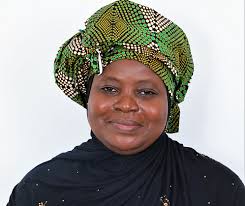 In every nation’s journey, there are individuals whose contributions leave lasting footprints in governance, development, and social progress. In The Gambia, one such figure is Rohey John Manjang, a woman whose leadership, vision, and service to her country have made her a respected political figure. Known for her dedication to public service, Rohey John Manjang has built a reputation for integrity, transparency, and results-driven leadership.
In every nation’s journey, there are individuals whose contributions leave lasting footprints in governance, development, and social progress. In The Gambia, one such figure is Rohey John Manjang, a woman whose leadership, vision, and service to her country have made her a respected political figure. Known for her dedication to public service, Rohey John Manjang has built a reputation for integrity, transparency, and results-driven leadership.
This blog post explores the life, career, and contributions of Rohey John Manjang. We will examine her background, her political rise, her role in governance, and the challenges she faces as a woman in leadership. The goal is to provide readers with a clear understanding of her impact on Gambian society and the legacy she continues to build.
Early Life and Background
The story of Rohey John Manjang is one that reflects determination and a deep sense of responsibility. Born and raised in The Gambia, her early years were shaped by a combination of cultural values and the aspiration to make a difference in her community.
From a young age, she displayed qualities of leadership and resilience. Education played an important role in shaping her worldview. Like many leaders, she understood that knowledge was not just a personal asset but also a tool for empowering her community and creating opportunities for others.
Entry into Public Service
Rohey John Manjang’s journey into politics and public service did not happen overnight. She gradually built her credibility by engaging in community initiatives, supporting social development programs, and being a voice for the underserved.
Her ability to connect with people from all walks of life earned her recognition. This foundation paved the way for her entry into politics, where she has demonstrated commitment to addressing national issues and contributing to The Gambia’s growth.
Political Career and Leadership
The political career of Rohey John Manjang reflects a balance between passion and responsibility. As one of the notable women leaders in The Gambia, she has broken barriers and redefined what it means to serve with dedication.
Her leadership is characterized by:
-
Transparency: She emphasizes accountability in governance, ensuring that resources are used effectively.
-
Inclusivity: She advocates for policies that empower women, youth, and marginalized communities.
-
Sustainability: She has shown interest in programs that promote long-term national development rather than short-term fixes.
Through her work, she has not only represented the people but also inspired many young Gambians, particularly women, to take an interest in leadership and politics.
Role in Governance
As a minister and influential leader, Rohey John Manjang has played a central role in shaping policies that affect Gambian citizens. Her portfolio has seen her tackle complex challenges while also pushing for reforms that can uplift communities.
She has particularly championed causes in areas such as:
-
Environmental protection and climate resilience
-
Community development initiatives
-
Strengthening governance structures
-
Enhancing public participation in decision-making
By addressing these issues, she demonstrates her understanding that good governance requires a holistic approach, balancing economic growth, social development, and environmental sustainability.
Women in Gambian Politics: Breaking Barriers
One of the most remarkable aspects of Rohey John Manjang’s journey is her role as a woman in Gambian politics. In many parts of the world, women still face barriers in leadership. The Gambia is no different, but leaders like Rohey John Manjang continue to challenge stereotypes and open doors for others.
Her presence in politics has highlighted the importance of gender equality in leadership. By holding key positions and making impactful decisions, she proves that women have a vital role in governance and national development.
Challenges Faced
Like any leader, Rohey John Manjang faces challenges. Some of the obstacles she has had to navigate include:
-
Political pressures – Balancing the expectations of citizens and the realities of governance.
-
Limited resources – Ensuring development projects succeed despite financial and infrastructural constraints.
-
Gender biases – Overcoming stereotypes that often downplay women’s abilities in leadership.
-
Global crises – Managing the effects of external issues such as climate change and economic instability on national development.
Despite these challenges, she has remained steadfast, demonstrating resilience and adaptability.
Achievements and Contributions
Over the years, Rohey John Manjang has made significant contributions to Gambian politics and governance. Some of her achievements include:
-
Policy reforms aimed at strengthening transparency and accountability.
-
Advocacy for women and youth empowerment through programs and initiatives.
-
Environmental initiatives that align with global sustainability goals.
-
Strengthening governance structures to ensure fairness and inclusivity.
Her achievements show that leadership is not just about occupying a position but about making tangible contributions that improve lives.
Vision for The Future
Looking ahead, Rohey John Manjang envisions a Gambia where governance is inclusive, development is sustainable, and citizens enjoy equal opportunities. She continues to advocate for reforms that will empower the youth, protect the environment, and ensure that national resources benefit all citizens.
Her vision emphasizes:
-
Building stronger institutions that uphold democracy and good governance.
-
Expanding opportunities for young people through education and employment.
-
Protecting the environment for future generations.
-
Promoting unity and peace as the foundation for sustainable development.
The Legacy of Rohey John Manjang
As a leader, Rohey John Manjang is already shaping a legacy of integrity, service, and inspiration. Her story is not just about her personal journey but also about the broader message that women can and should play a central role in national leadership.
Her commitment to transparency, inclusivity, and sustainability positions her as one of the most influential figures in contemporary Gambian politics.